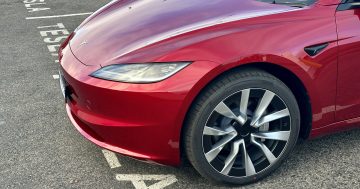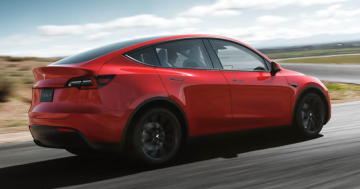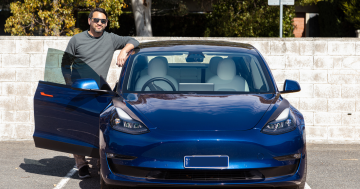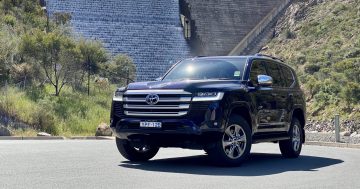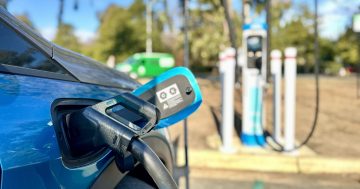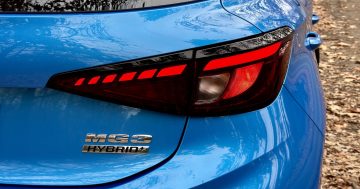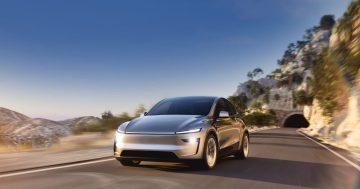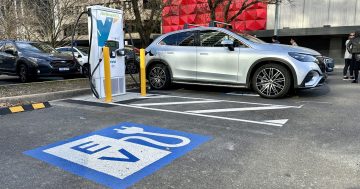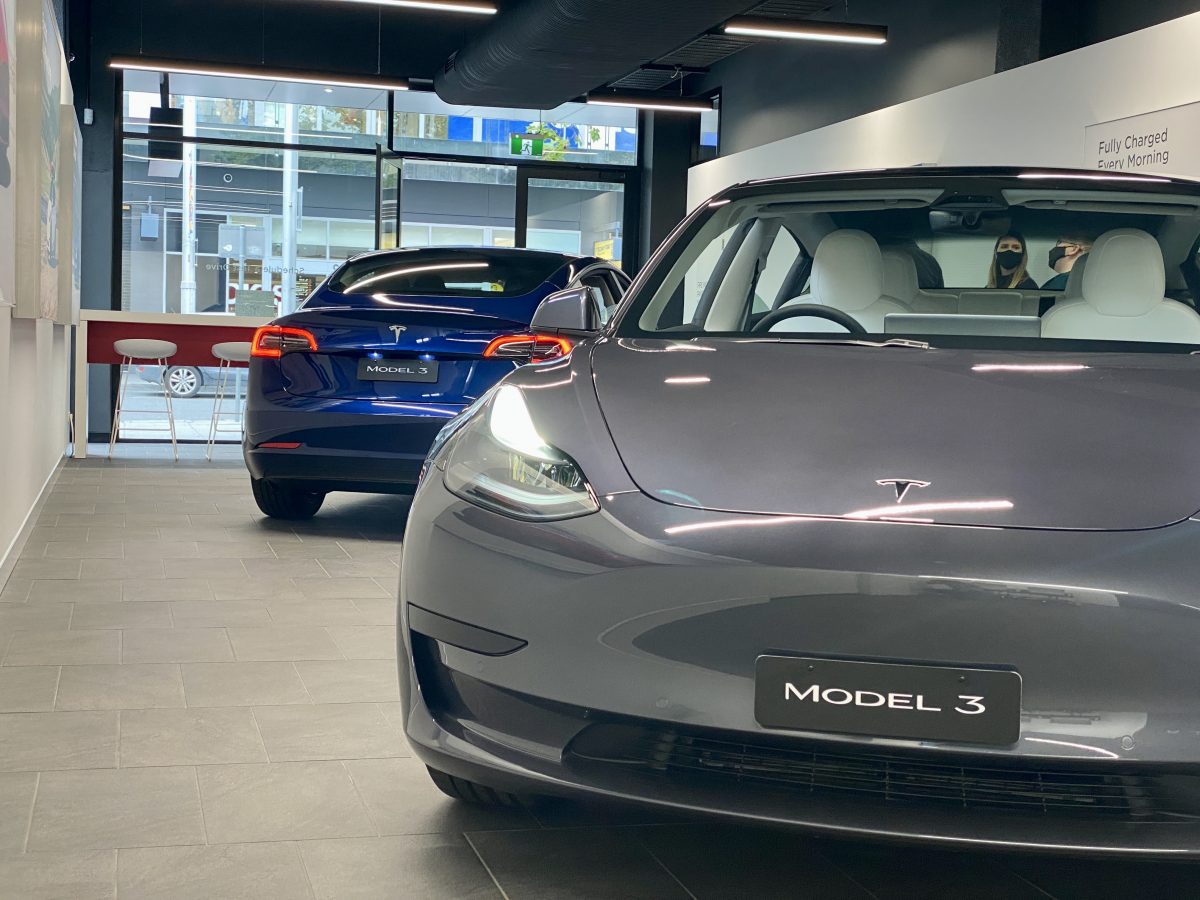
Inside the Tesla Canberra store on Bunda Street, Civic. Photo: James Coleman.
Canberra’s new car sales for 2022 are in, and they confirm what most of us suspect from a cursory look around the streets.
According to sales data from the Federal Chamber of Automotive Industries (FCAI), Canberrans took 16,228 new cars home last year. Of these, 725 were made by Tesla. This makes it unequivocally Canberra’s favourite electric-car maker and eighth-best-selling car brand.
The Model Y SUV only joined their Model 3 in September, yet both star among the top 10 cars sold in the ACT last year – the Model 3 in sixth place with 426 sales, and the Model Y at 10th with 299 sales.
Electric car sales across the board might have also jumped by more than 1000 on the previous year to 1280 in 2022, but petrol still leads the way in the ACT with 8933 sales, followed by diesel with 4083. The rest went to petrol-electric hybrids (1524) and plug-in hybrids (222).
Unsurprisingly, the SUV body style is also leading market share, with nearly 4000 sales for passenger cars paling in comparison to 10,000 for the higher rider. Utes account for 2377 sales, slightly down on last year.
Total sales are only slightly up on 2021 – representing little improvement on the semi-conductor shortage situation plaguing the global car industry. In 2019, 19,693 new cars were bought in the ACT.
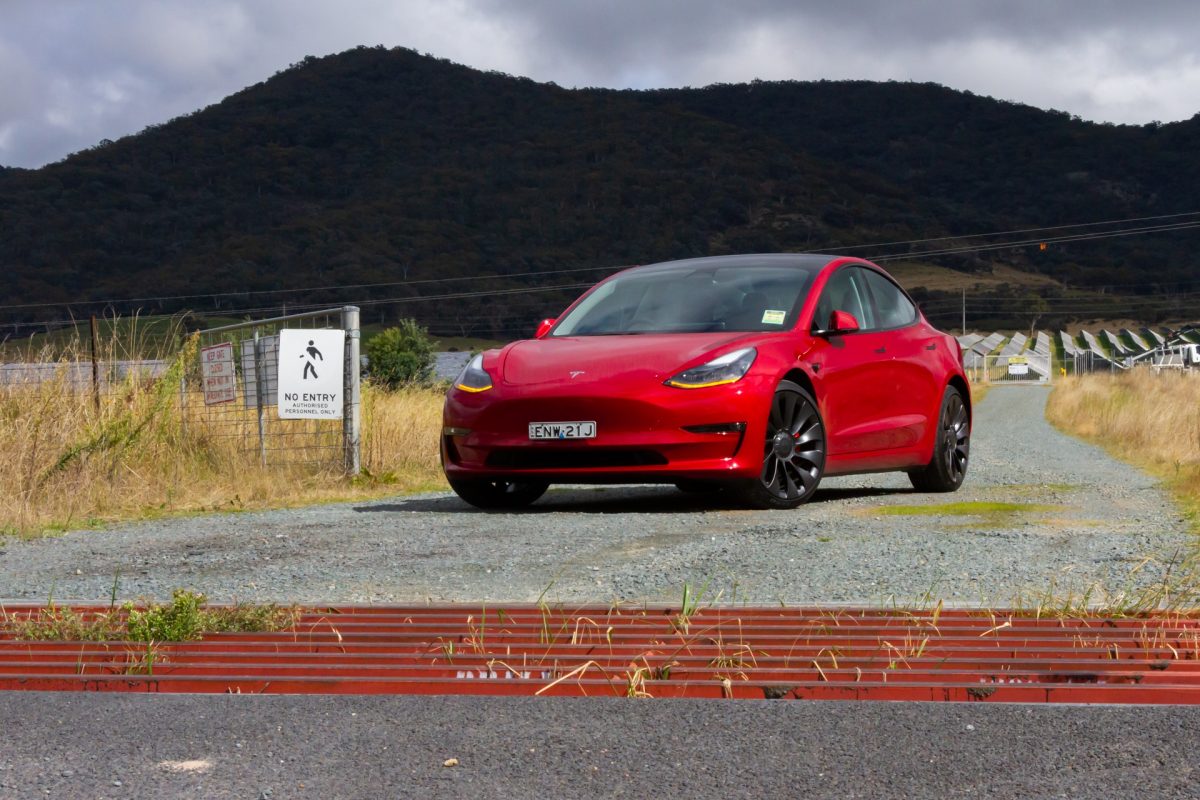
A Tesla Model 3 Performance outside the Royalla Solar Farm. Photo: James Coleman.
Of the non-Tesla cars sold in the ACT last year, first place goes to the Toyota HiLux (661 sales), followed by the Toyota RAV4 (566), Ford Ranger (510), Mazda CX-5 (460), Toyota Corolla (432), Mazda CX-30 (363), Hyundai i30 (323) and Mitsubishi Triton (310).
It’s a mild shuffle on the previous year’s list, helped by an all-new Ford Ranger and a facelift for the Mazda CX-5, but despite a wait time for the Toyota RAV4 pushing two years now.
The ACT’s best-selling brands are Toyota (2856 sales), Mazda (1745), Kia (1288), Hyundai (1281), Mitsubishi (924), Volkswagen (840), Subaru (782), Tesla (725), Ford (723) and MG (598).
Nationally, Tesla’s sales almost doubled last year and accounted for nearly two of every three electric vehicles sold in Australia. The Model 3 even ended the Toyota Camry’s 28-year dominance of the mid-size segment, with 10,877 sales beating the Camry’s 9538.
On the back of this – not to mention the second best EV seller, BYD – Australia’s EV sales rocketed from 5149 in 2021 to 33,410 in 2022.
But fossil fuels are far from dead. Diesel in passenger cars (hatches, sedans and wagons) had its strongest result in four years and sales of diesel-powered SUVs grew by 13.9 per cent. Petrol accounted for more than half a million sales.
FCAI CEO Tony Weber said the pathway through COVID recovery, microprocessor shortages and bottlenecks due to global shipping issues had created “great challenges for car makers and their dealer networks”.
“While 2022 has been a year of resilience and recovery, 2023 is shaping up as one of the most significant in recent history, particularly in terms of the development of policies that set the direction for the future decarbonisation of the light vehicle fleet,” he said.












